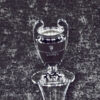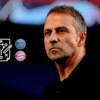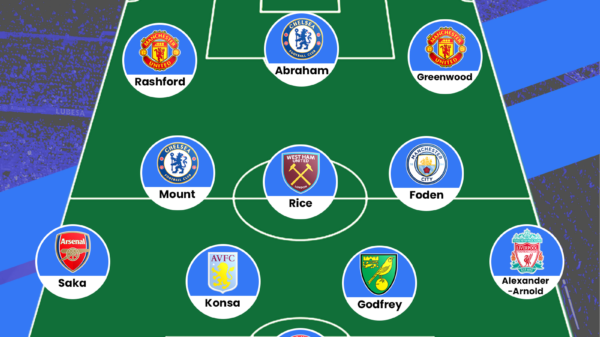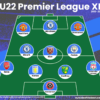In a match that may be remembered for finally allowing Paris Saint-Germain to enter the conversation as regards being part of the top tier of clubs in Europe, and not just an expensive aggregation of players, several things stood out. Primary among these was a more than fair result, with the French champions earning a 2-2 draw to progress on away goals. But more than just being able to score, the bottom line was that PSG, having shown that they are able and willing to dig in and be methodical, should now be considered among the real contenders for the Champions League. While probably still short of the level of Bayern Munich or the trio of Spanish clubs still alive in the competition, on a night that was never going to be easy, even in ideal circumstances, PSG should be lauded for showing tremendous grit and determination. That being said, the match’s other storyline was that Laurent Blanc’s charges were not only hard-working, but also opportunistic in taking full advantage of indifferent performances on the part of a few Chelsea players.
Chelsea 2-2 PSG
Line Ups
Chelsea: 13. Courtois // 2. Ivanovic – 24. Cahill – 26. Terry – 28. Azpilicueta // 21. Matic – 4. Fabregas – 7.Ramires – 11. Oscar – 17. Hazard // 19. D. Costa.
PSG: 30. Sirigu // 5. Marquinhos – 2. T. Silva – 32. D. Luiz – 17. Maxwell // 8. T. Motta – 24. Verratti – 14. Matuidi // 27. Pastore – 10. Ibrahimovic – 9. Cavani.
Goals: Cahill 81′; Hazard (p) 96′ // D. Luiz 86′; T. Silva 114′.
Already shorn of Lucas Moura, their most creative player this season, due to injury, when Paris Saint-Germain saw Zlatan Ibrahimovic sent off after a challenge on Oscar after half an hour, things looked dire indeed. However, even though they were still in need of a vital away goal, in many ways, there may have always been a reason to be hopeful for the visitors. Not least of all is the fact that as talismanic as the big Swede is for PSG, he had been barely involved to that point in the match, and his team were acquitting themselves fairly well without his involvement. WhoScored credited Ibrahimovic with 16 touches in his time on the pitch, but none of those came in Chelsea’s penalty area, failing to get on the end of several crosses from the fullbacks. With Ibrahimovic gone, those crosses were now intended for the more mobile Edinson Cavani, and thus, one could even argue that more space was afforded for PSG to attack.
Chelsea in the wide areas
Prior to the sending-off, Chelsea had appeared to be set up to attack PSG from wide areas, with Ramires earning a start ahead of Willian on the right wing, the former Benfica man’s pace meant to trouble Maxwell. On the opposite flank, Marquinhos was making his first appearance at right back in the Champions’ League, lining up against the always tricky Eden Hazard. Looking at the team sheets, it seemed all too easy to predict Chelsea’s modus operandi for the match, the wingers pinning back the fullbacks and Diego Costa pressuring the center backs. However, thanks in large part to Marco Verratti, things were never going to be that simple. While perhaps not as influential going forward as one would have liked, the diminutive Italian consistently tracked back, effectively helping Marquinhos close down the threat of Hazard by doubling up on the Belgian.
Even as he drifted inside, the former Lille man found his path blocked by Verratti, which in turn freed the right back to provide width going forward, an approach which also had the knock-on effect of allowing Javier Pastore, nominally the right winger, a freer role in attack.
Pastore, for his part, responded quite well, not only consistently drawing fouls (dead balls becoming more important after Ibrahimovic’s dismissal) but also putting in a shift defensively and generally occupying Chelsea’s full backs on both flanks.
Approach in the middle of the park
Aside from Thiago Motta, the Argentine had the second most touches in the match, his running and movement instrumental in PSG’s ability to keep the game on level terms even while being a man down. While his passing, especially on the final ball, was much like Verratti’s in that it left something to be desired on the evening, his habit of popping up in different places on the pitch kept Branislav Ivanovic in particular from being more involved going forward. This, in turn limited the effectiveness of Ramires and Oscar. While the latter was particularly anonymous, both Brazilians appeared somewhat unclear as to their roles. Normally employed as the attacking midfielder in Chelsea’s 4-2-3-1, Oscar failed to establish himself in any meaningful way centrally, and with Ramires occupying the right, he did have some joy on the left flank. That said, his removal at halftime was more than the right decision, having failed to find space even when Hazard had moved further inside, switching with Diego Costa in an attempt to drag the PSG center backs out of position.
With Ibrahimovic gone, the opportunity for Chelsea to force the issue going forward presented itself, as the striker’s dismissal theoretically would lessen the defensively responsibilities of the midfield pairing. Used as part of a central two, but now with his defensive responsibilities alleviated, Cesc Fabregas’ creativity could be a potential key to breaking down a resolute PSG defense. It would also allow Chelsea’s central defenders to get forward to be involved from set pieces and even open play.
Indeed, this was what happened in the immediate aftermath of Ibrahimovic’s dismissal but, perhaps over-eager to dispossess their Parisian counterparts, the Chelsea midfield seemed to lose their heads, committing several needless fouls in the center of the pitch, neglecting to quickly capitalize on their advantage. Taking the time to re-organize themselves, Paris were able not only to shuffle the pack, moving Edinson Cavani centrally and pushing Blaise Matuidi further up the pitch, forming a sort of 4-1-3-1.
This formation would require a great deal of work from the central three, but with Cavani aiding in tracking back as well, it was quite effective, owing to a greater general fluidity without Ibrahimovic. Almost immediately, PSG set about fashioning a couple of chances, with Maxwell just failing to find Cavani with a ball over the top on 39 minutes. Chelsea would perhaps feel hard done by after Cavani knocked over Costa in the box just before halftime, but had no one to blame but themselves for not having pressed their advantage more effectively in the first half.
At the start of the second half, with the more direct Willian having replaced Oscar, Ramires moved into a holding role alongside Nemanja Matic, theoretically allowing Fabregas to move into a more natural attacking midfield position.
With Ramires employed more centrally, Branislav Ivanovic, so quiet going forward in the first half, also began to grow into the game, although, much as Verratti had aided Marquinhos in closing down Hazard, Blaise Matuidi did all that he could to make things difficult for the big Serb, aiding Maxwell in limiting his effectiveness. Things were sluggish in the early going after halftime, though, with PSG continually hoofing the ball long in an attempt to buy their tiring squad more time. Chelsea, for their part evinced a continued lack of synchronicity going forward, with Ramires too often taking a more advanced position than Fabregas, clogging the Spaniard’s space.
As the half wore on, though, PSG began keeping the ball on the ground more, and this looked to be more effective, with Verratti springing Cavani on 57 minutes, only for the Uruguayan to fire wide. This trend continued throughout the half, as the inventiveness of Pastore and Matuidi on the wings made things difficult, the Argentine spurning several chances from tight angles. Chelsea, for their part, looked entirely unsure what to do with themselves, Jose Mourinho’s tinkering seeing occasional switching of Hazard and Willian on the wings, Fabregas dropping deeper, and Ramires again running beyond the Spaniard into space, but despite long spells of possession, nothing came off. Here too, as in the first half, Chelsea continued to needlessly concede fouls, with Matic being particularly guilty in this regard. Also showing a lack of urgency in closing PSG down, Chelsea dropped deeper and deeper to bring the ball out, continually allowing the visitors time to re-group.
PSG exploit set plays
In the end, though, the proceedings from open play were academic, as Chelsea were undone not by any tactical naivete, but by poor marking on PSG’s set pieces. With limited opportunities to score from open play, save Cavani’s aforementioned chance and a well-struck header by substitute Ezequiel Lavezzi on 83 minutes, as the game wore on, PSG honed their corners, continuing to put only their biggest players into the box, and even then in relatively limited numbers.
This had the two-fold advantage of not only forcing Chelsea to be honest but also safeguarding against the threat of a counterattack, with smaller, quicker players stationed further up the pitch. After numerous set pieces (Paris took 11 corners and suffered 24 fouls in the match), the visitors’breakthrough finally came in the 86th minute, sending the tie to added time when David Luiz went unmarked and rose highest to keep the tie alive, Gary Cahill having given the home side the lead in the 81st minute, ironically also from a corner.
In added time, with Adrien Rabiot and Lavezzi having replaced the influential duo of Verratti and Matuidi just after Cahill’s goal, Chelsea displayed the attacking intent that had been missing for the last eighty minutes. Didier Drogba, on for Ramires at the end of regular time, continually harassed PSG ‘keeper Salvatore Sirigu, instilling in his teammates the urgency necessary to put the tie to bed with a vital second goal. With his introduction, space was also made available for Eden Hazard,with Costa now taking up a position on the right. The Belgian, in a freer role akin to earlier in the match, was able to run at the PSG defense on several occasions, facilitating play by attempting to link with Willian, who was also operating more centrally, both players buzzing about in the void behind Drogba. Although when Chelsea earned a penalty on 96 minutes, it was not from the play of these two, but the renewed intent seemed to bode well for the home side, giving them a 3-2 aggregate lead.
However, with the lead in hand, Chelsea once again reverted to type, with Gary Cahill almost immediately fouling Lavezzi some 30 yards from goal, yet another in a series of silly fouls for the home side. Willian likewise got in on the act, and one could sense doubt beginning to creep back in for Chelsea, especially when David Luiz produced a fine save from Thibault Courtois from the resultant free kick. Demonstrating remarkable patience, PSG continued with the same methodical approach that had paid dividends for them to that point, keeping the ball on the ground and establishing a passing rhythm that would frustrate their opposition into giving away a corner or free kick.
When the equalizer came, in the second half of added time, from the second of successive corners, Courtois having saved from Thiago Silva from the first, the Brazilian made no mistake with his second opportunity, looping the ball into the opposite corner to give his team the advantage. The marking on the play was effectively a microcosm of Chelsea’s performance on the night: even with an obvious numerical advantage, the team failed to properly utilize space and track the movement of the opposition, leading to a gilt-edged chance. Once again, a lack of concentration and impetus were Chelsea’s undoing and the result was fully deserved for the Ligue 1 side, especially with a state of shock being their hosts’ response in the aftermath of the equalizer, even as Ivanovic forced a save from Sirigu. Diego Costa and Cesar Azpilicueta demonstrated their petulance in continued whinging as the clock ticked down, their attitude a fine summation of a dismal performance overall.
As a final point, while many in England bemoan the lack of quality the Premier League has demonstrated in the Champions’ League this season in the aftermath of this match, Chelsea weren’t totally abject on the night, and perhaps an equivalent amount of praise should go to Ligue 1. Like Monaco had done two weeks prior at the Emirates, on the night, PSG showed a willingness to be tactically flexible, defensively sound, and for the whole team to work hard. Those factors, with just a bit of luck, will likely result in two French sides advancing to the quarterfinals for the first time since 2009-10, when Bordeaux met Lyon at this stage, assuming that Arsenal fail to overtake Monaco next week. While this comes after several years of the league struggling in European competition, I am by no means declaring this result the beginning of a renaissance for Ligue 1. However, with this match and Monaco’s defeat of Arsenal already being hailed as historic moments in the Champions’ League, here’s hoping that a few more pairs of eyes are opened to the levels of quality, both in playing ability and tactical nous currently on display in France.
Written by Eric Devin
































































